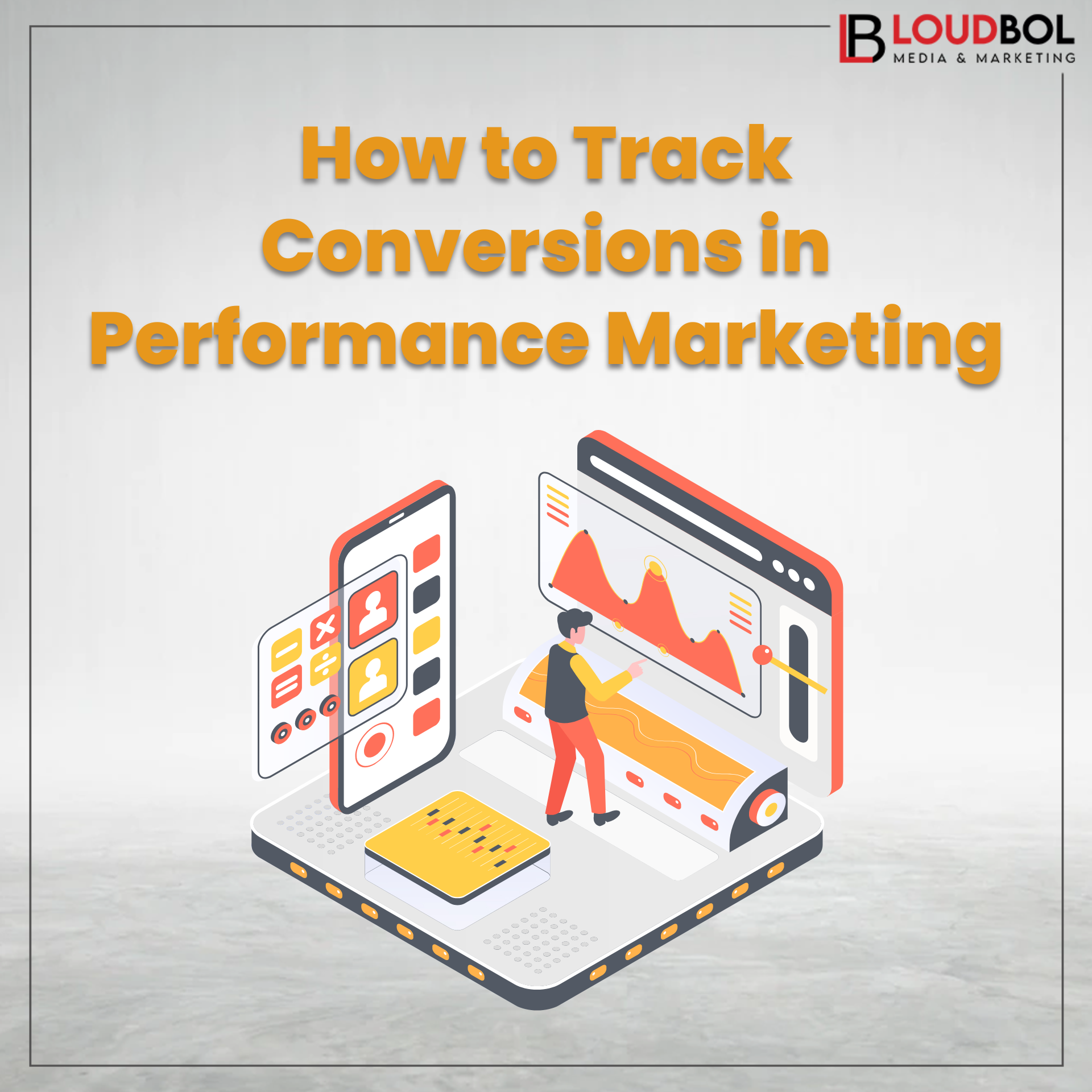Pouring money into marketing campaigns, and being unable to find which one is bringing in new customers?
Fear not!
That is the frustrating reality for many businesses in today’s data-driven marketing landscape.
In performance marketing, every click, lead, and sale counts. But how do you know which marketing efforts are truly driving results? That is where conversion tracking comes in. By effectively tracking conversions, you gain the insights needed to optimize campaigns, maximize ROI, and stay ahead of the curve.

What are Conversions?
Before diving into tracking, let us define conversions. In performance marketing, a conversion is any desired action a user takes after interacting with your marketing campaign. This can range from a website purchase to a newsletter signup, depending on your specific goals.
Why Track Conversions?
Conversion tracking is not just a nice to have; it is essential for success. Here is why:
Measure campaign effectiveness: See which campaigns are driving the most conversions and identify areas for improvement.
Optimize budget allocation: Focus your resources on channels and tactics that deliver the highest return.
Gain customer insights: Understand user behavior and tailor your marketing messages for better conversion rates.
Prove campaign ROI: Demonstrate the value your marketing efforts bring to your business.
Setting Up Conversion Tracking
Now, let us get down to the brass tacks. Here is a step-by-step guide to setting up conversion tracking:
Define your conversion goals: Be clear on what actions signify success for your campaigns (e.g., purchases, downloads, signups).
Choose your tracking tool: Popular options include Google Analytics, UTM parameters, and dedicated conversion tracking platforms.
Implement tracking code: Integrate the chosen tracking method into your website or landing pages.
Test and monitor: Ensure your tracking is functioning properly and regularly analyze conversion data.
Popular Conversion Tracking Tools:
Google Analytics: A free and powerful tool offering a wide range of conversion tracking features.
UTM parameters: Append codes to your website URLs to track campaign source, medium, and term.
Dedicated conversion tracking platforms: Some paid services offer advanced tracking capabilities and detailed reporting.
Understanding What Gets You Results: Tracking Conversion Goals
When using tools like Google Analytics, defining clear conversion goals is crucial for account managers. These goals, tied to specific actions or elements (pages, services), help measure your marketing efforts success.
Typical Conversion Goals:
- Driving traffic to physical stores
- Increasing website visitors
- Encouraging contact via calls or messages
- Adding items to carts
- Completing purchases
- Newsletter sign-ups
- Downloading content offers
- Video plays

Identify Top Marketing Channels
By tracking conversions, businesses can pinpoint their most valuable marketing channels through conversion attribution (crediting channels for conversions). This allows for smarter budget allocation and resource investment towards high-performing channels like social media.
Key Performance Indicators (KPIs) to Track:
There are two main categories of metrics to consider: conversion-related KPIs and broader effectiveness metrics.
Conversion KPIs:
- Conversion quantity (number of conversions)
- Conversion rate (percentage of visitors converting)
- Cost per conversion/acquisition
- Bounce rate (percentage of visitors leaving after one page)
- Effectiveness Metrics:
- Pages per visit (average number of pages viewed per visit)
- Destination page hits (number of visits to specific goal pages)
- Events (video plays, content downloads)
- Session duration (average time spent on the website)
Conversion Rate vs. Other Metrics:
Conversion rate directly assesses conversions, while metrics like events track actions that might lead to future conversions.
Pro Tips for Conversion Tracking Success:

Track multiple conversion points: Go beyond just sales and track other valuable actions throughout the customer journey.
Segment your data: Analyze conversions by different channels, devices, or audience segments for deeper insights.
Set conversion goals realistically: Consider factors like industry benchmarks and campaign objectives.
Stay updated: New technologies and tracking methods emerge constantly, so keep learning and adapting.
By implementing effective conversion tracking, you transform data from a jumble of numbers into a strategic roadmap for success. You will gain the power to optimize your performance marketing campaigns, maximize return on investment, and ultimately achieve your marketing goals. Remember, data is knowledge, and with the right tools and strategies, conversion tracking can be your secret weapon in the competitive world of performance marketing.




Wow superb blog layout How long have you been blogging for you make blogging look easy The overall look of your site is magnificent as well as the content.
I do trust all the ideas youve presented in your post They are really convincing and will definitely work Nonetheless the posts are too short for newbies May just you please lengthen them a bit from next time Thank you for the post.
This website has quickly become my go-to source for [topic]. The content is consistently top-notch, covering diverse angles with clarity and expertise. I’m constantly recommending it to colleagues and friends. Keep inspiring us!
I’m truly impressed by your profound understanding and stellar way of expressing complex ideas. Your expertise is evident in every piece you write. It’s clear that you invest a great deal of effort into understanding your topics, and that effort does not go unnoticed. Thanks for providing such valuable insights. Keep on enlightening us!
Your A/B testing tips have improved my email content.
I was just as enthralled by your work as you were. The visual display is refined, and the written content is of a high caliber. However, you seem anxious about the possibility of delivering something that could be perceived as questionable. I believe you’ll be able to rectify this situation in a timely manner.